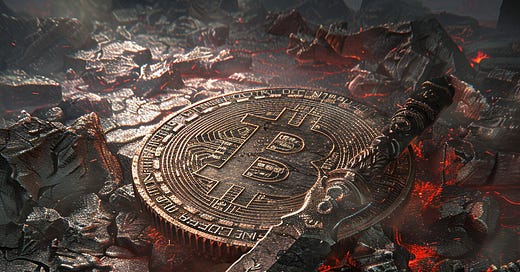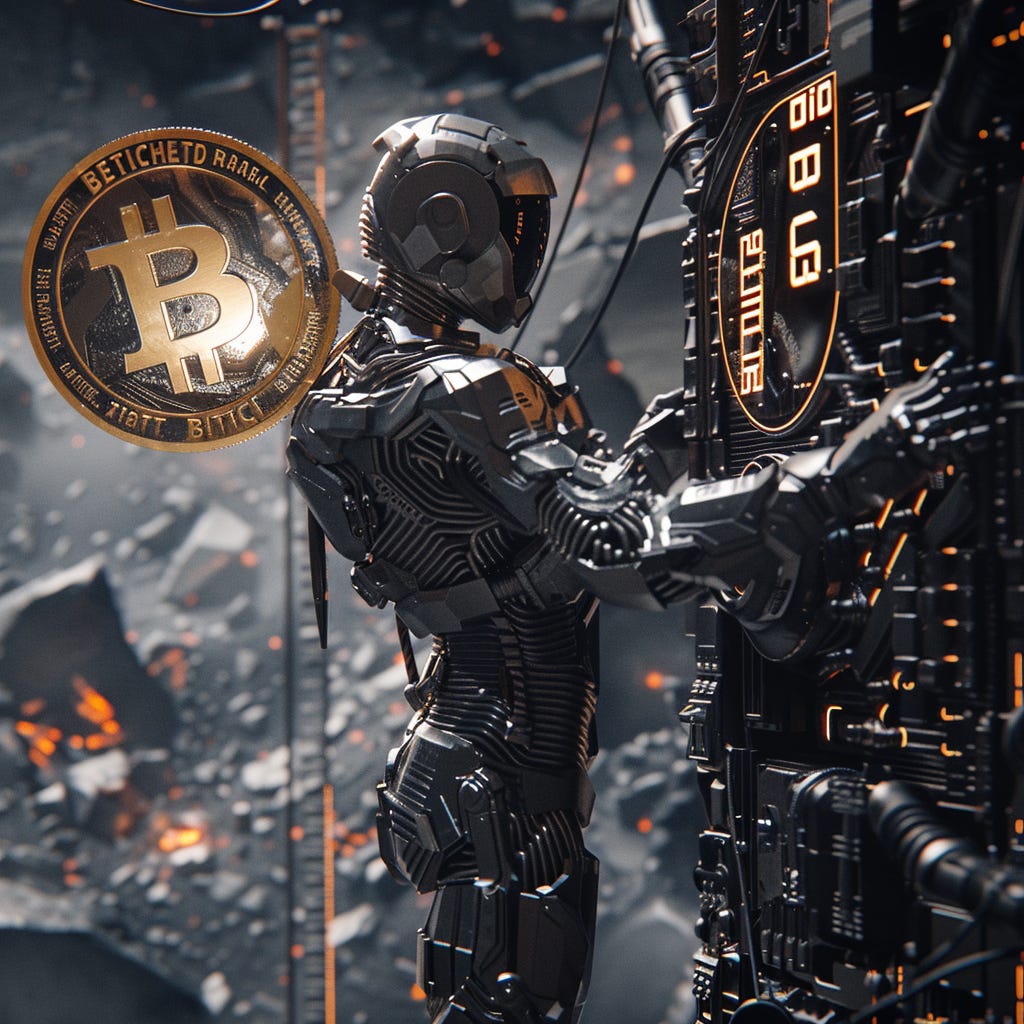Bitcoin stands as a beacon of decentralization, challenging the traditional paradigms of monetary control and offering a glimpse into a future where financial sovereignty is within the grasp of every individual. Despite facing waves of skepticism and outright hostility from certain quarters, including attempts at government bans and fears over global internet outages, Bitcoin's inherent design and philosophy render it not just resistant to such threats but capable of thriving in the face of adversity. From my perspective, the resilience of Bitcoin is not just theoretical but demonstrably evident in recent history and the very architecture of its network.
Bitcoin's Resistance to Government Bans
The attempts by various governments to ban or restrict Bitcoin usage, most notably by China among others, have indeed caused temporary fluctuations in its value and operational challenges for local exchanges and miners. However, these efforts have largely failed to stifle the adoption and utility of Bitcoin. This resilience can be attributed to Bitcoin's decentralized nature. Unlike traditional banking systems, which operate within a regulatory framework controlled by governments, Bitcoin's peer-to-peer network transcends national borders and regulatory jurisdictions. When one country imposes bans or restrictions, the network simply routes around these obstacles, continuing its operations elsewhere without significant disruption. Also, what are you banning? Code? Math? Seems hard to do that.
The case of China serves as a poignant example. Despite stringent regulations and a blanket ban on cryptocurrency transactions and mining activities, the demand for Bitcoin within China remains robust, facilitated by peer-to-peer platforms and offshore exchanges that enable Chinese users to bypass governmental controls. This adaptability underscores a fundamental truth about Bitcoin: as long as there is internet access and at least two parties willing to transact, Bitcoin can and will find a way to facilitate that transaction.
Bitcoin and the Threat of a Global Internet Outage
The fear among some critics, particularly proponents of traditional assets like gold, is that Bitcoin would become inaccessible in the event of a global internet outage or an EMP (Electromagnetic Pulse) attack. This scenario, while evocative of dystopian fiction, overlooks several critical aspects of Bitcoin's design and the global internet infrastructure.
Firstly, the probability of a comprehensive global internet shutdown is exceedingly low. The internet is a vast network of networks, designed with redundancy and resilience at its core. A localized outage, while disruptive, would not halt Bitcoin transactions globally, thanks to the network's decentralized nature. Bitcoin nodes, spread across the globe, ensure the network's continuity even if parts of the world go offline.
Moreover, should an unprecedented global outage occur, Bitcoin's blockchain remains secure. With tens of thousands of nodes worldwide, each storing a complete copy of the blockchain, the historical record of all transactions is preserved. Upon restoration of internet services, these nodes would synchronize, resolving any discrepancies and continuing the blockchain's unbroken chain. This resilience is further bolstered by the financial incentives for miners to rejoin the network, ensuring Bitcoin's continued operation and security.
It's also worth noting the innovative ways Bitcoin can adapt to connectivity challenges. In regions with unstable internet access, Bitcoin transactions can be conducted via SMS or satellite connections, demonstrating the network's flexibility. The use of feature phones for Bitcoin transactions in Africa exemplifies how even basic technology can facilitate participation in the global Bitcoin network.
Conclusion
In facing down the dual specters of government bans and global internet outages, Bitcoin demonstrates not just resilience but an enduring capacity for growth and adaptation. The very challenges that critics claim would be Bitcoin's undoing instead highlight its strengths: decentralization, peer-to-peer architecture, and an indomitable spirit of innovation. As Bitcoin continues to evolve, it not only withstands the tests thrown its way but emerges stronger, offering a robust alternative to traditional financial systems and affirming its role as a cornerstone of a future where financial freedom is accessible to all.
Not financial or legal advice, for entertainment only, do your own homework. I hope you find this post useful as you chart your personal financial course and Build a Bitcoin Fortress in 2024.
Thanks for following my work. Always remember: freedom, health and positivity!
Please also check out my Bitcoin Fortress Podcast on all your favorite streaming platforms. I do a weekly Bitcoin news update every week on current items of interest to the Bitcoin community, usually 30 to 60 minutes depending on the number of topics to cover. Please check it out if you haven’t already. Also now on Fountain, where you can earn Bitcoin just for listening to your favorite podcasts.
Follow me on Nostr:
npub122fpu8lwu2eu2zfmrymcfed9tfgeray5quj78jm6zavj78phnqdsu3v4h5
If you’re looking for more great Bitcoin signal, check out friend of the show Pleb Underground here.
Lightning tips appreciated here.







Love that paragraph about govt bans. Govts can only fool the fools.
That said your’are amaizing, you’re number one (nobody pays me to write this).
Thanks for ALL your articles, always a pleasure reading them, always on the dot!
Keep the good work up.
When freedom it allowed to happen we see the thinks that created to correct the system that have no restraint. Whether it is Bitcoin or something else-I prefer Gold, Guns, Tobacco, Whiskey, and Bitcoin-something had to come along to bring a society check and balance to the system, we should be thankful that something came along while we still have the freedoms and resources.